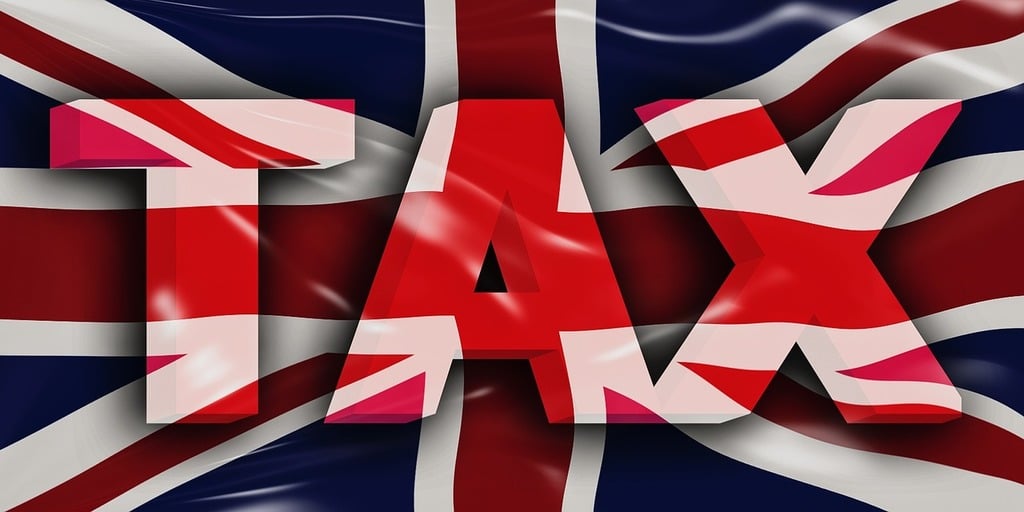
UK Taxes Minimum Wage Surge Signals Remarkable Progress
UK taxes 101
Recent research from the Centre for Policy Studies (CPS), a think tank co-founded by Margaret Thatcher in the 1970s, has highlighted that employing workers on minimum wages in 2025 will cost UK businesses nearly double what it did in 2024. The Centre, which is famous for its conservative viewpoints, has warned that hiring the lowest-paid workers will become more expensive than ever before.
This analysis has gained attention as some of the UK’s largest retailers have expressed concerns about potential job losses resulting from the increased cost of employment due to higher taxes.

Why will it become costly to hire workers on minimum wages?
The cost of employing minimum wage workers is set to rise by nearly £2,000 from 2025 onwards.
According to analysts, the UK tax burden is expected to hit a new high this year, largely due to an increase in the employer’s National Insurance rate and a reduction in the threshold for contributions.
The employer National Insurance rate will rise from 13.8% in 2024 to 15% in 2025. Additionally, the threshold, which was previously set at £9,100, will be lowered to £5,000 from April 2025.
As per analysis, the cost of employing someone aged 21 or over on the minimum wage in 2024 was £22,439. In 2025, this cost is expected to increase to £24,806—a difference of approximately £2,367 per person. This payroll tax increase means that, over the past decade, the total tax burden per employee on the minimum wage will have nearly doubled.
According to the Centre for Policy Studies, the total tax paid by employees and employers in 2015 accounted for around 11% of the minimum wage. This is projected to rise to 21% from April 2025 onward.
However, tax increases are not the only contributing factor. A significant rise in minimum wages is also to blame. From April, the hourly minimum wage will increase from £11.44 to £12.21.
The net effect is that employers will have to pay an additional £2,367 to hire full-time workers on minimum wages, further increasing the cost of employing the country’s lowest-paid staff.

What’s been the history of the UK’s payroll levy?
Between 2010 and 2015, the coalition government of the Conservative and Liberal Democrats eased the squeeze on employment-related taxation.
However, when the Conservatives regained power, things tightened again, a trend that continued until their defeat in the 2024 summer elections to the Labour Party.
The situation worsened as wages increased faster due to worker demands driven by high living costs, while the tax thresholds on salaries failed to rise at the same pace. Political pressures prevented ministers from increasing the thresholds. Then, the COVID-19 pandemic further strained public finances on a long-term basis.
The Effect of Increased NIC on Employment and Businesses
The Centre for Policy Studies (CPS) predicts that the “tax wedge” will continue to grow as the Labour Party plans to introduce legislation to increase National Insurance contributions for employers. This change is expected in the next financial year as part of Prime Minister Keir Starmer’s strategy to raise more funds for public services.
Daniel Herring, a researcher at CPS, commented that moves such as the disproportionate increase in the employer National Insurance rate and the rising cost of employing workers will have a significant impact on those with the lowest salaries. It will also affect individuals looking to return to work after a period of economic inactivity.
The business sector has strongly criticized the government’s decision to hike National Insurance contributions for employers. Major UK retailers like Tesco, Boots, Next, and Sainsbury’s have written an open letter to Shadow Chancellor Rachel Reeves, warning that these policies could lead to significant job cuts as employers will be forced to pass on the hiked costs. Wage cuts and price hikes are also likely in the future.
Simultaneously, high taxes on employees and workers may demotivate both current and prospective workers, potentially affecting the broader employment sector.

Need help understanding how the government’s policy will affect your finances? Speak with experts at Cangaf Accountants.
BBC News – https://www.bbc.com
Description: BBC provides up-to-date news on UK tax policies, economic changes, and government reports related to taxation in the UK.
The Guardian – https://www.theguardian.com
Description: The Guardian offers in-depth articles and commentary on UK tax reforms, political discussions, and economic analysis of taxation.
Gov.uk – https://www.gov.uk
Description: The official UK government website, offering detailed guidance on taxes, policies, and updates on regulations for taxpayers in the UK.
Financial Times – https://www.ft.com
Description: The Financial Times covers comprehensive articles on UK tax reforms, economic strategies, and how tax policies impact business and financial markets.
Taxpayer Alliance – https://www.taxpayer.com
Description: A non-governmental organization focusing on UK tax policies, the Taxpayer Alliance advocates for lower taxes and transparent fiscal policies.
The Telegraph – https://www.telegraph.co.uk
Description: The Telegraph provides news and analysis on UK tax developments, political discussions on tax rates, and how taxes are influencing public policy.
HMRC (Her Majesty’s Revenue and Customs) – https://www.hmrc.gov.uk
Description: The official website for HMRC, offering guidance and resources for individuals and businesses regarding tax payments, regulations, and updates in the UK tax system.


